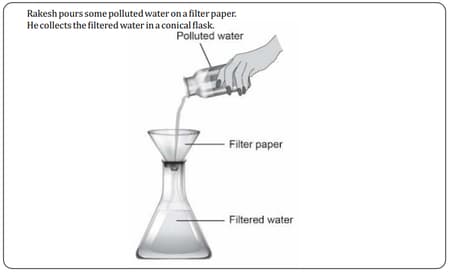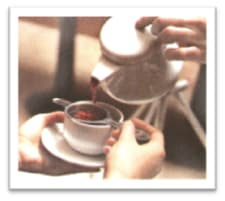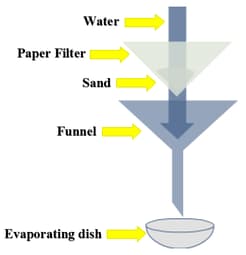Strain
Strain: Overview
This topic explains concepts such as Filtration, Filter Paper, Strainer, Applications of Filtration, etc.
Important Questions on Strain

Is the filtered water suitable for drinking? Explain your answer.
The table shows the processes required to separate different mixtures in four separate jars.
| Jar | Jar | Jar | Jar | Jar |
| Process | Distillation | Filtration | Evaporation | Sublimation |
What process does not involve heating?
The _____ is a filter made by punching holes or crossing wires.
The strainer is a filter made by punching holes or crossing wires.
Filter paper is a filter with very fine pores in it.
Take some muddy water in a beaker. Filter it in three different ways as shown below. Which do you think is the most effective method? Why?

_____ the technique used to separate solids from liquids.
Chromatography technique is used to separate sand and water.
Give an example of the following from our daily life.
Filtration in the kitchen.
Unscramble the following word to make meaningful word:
ESIERDU
Unscramble the following word to make meaningful word:
AIFLTRET
Unscramble the following word to make meaningful word:
ESUSPEDND ________
Observe the given image carefully and answer the following question.
Name the method of separation shown in the image.

State whether the following statement is true or false.

This method of separating a mixture of sand and water does not involve any chemical reaction, nor do they require energy input.
Which of the following solutions will leave a residue on the paper when they are filtered?
Name the following:
The process in which the solution containing undissolved particles is made to pass through a filter paper.
Some small pieces of wood charcoal have been found in sugar syrup. How will you separate them?
If the component in a mixture shows the property given below, then which separation method should be adopted—
One is soluble and another is insoluble in water.
Explain the process of getting pure salt from impure salt with diagram.
